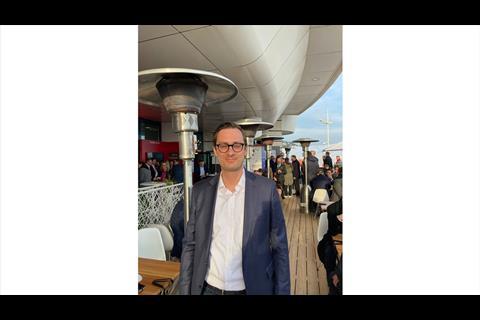As visitors flock to Mipim in Cannes again for a week of networking and business, two topics are on everyone’s mind: the war in Ukraine and rising inflation.
‘The Ukraine conflict is clearly a sad story,’ says Henning Koch, CEO of Wiesbaden-based investor Commerz Real. ‘It will also significantly impact the economy and it will have a negative influence on inflation.’ Koch is expecting an increase in construction costs and prices of raw materials as being among the most tangible effects.
That could spell bad news for developers who for some ongoing projects have already fixed their construction costs. For all other projects, new commitments at an early stage will be difficult. Rising costs can have consequences for agreements that have been closed already, says Koch, and rental levels will not go up ‘in the same line’.
Karim Habra, head of investment for Canadian investor Ivanhoé Cambridge in Europe and Asia Pacific, is cautious and thinks it is still ‘too early to tell’ what the impact of the war in Ukraine will be on the real estate sector and his company. ‘We are watching inflation because it makes construction more expensive,’ he says. At the same time, Ivanhoé Cambridge has no exposure in Ukraine or Russia.
For Commerz Real, the detrimental effects are less severe than for many other companies, according to Koch. For one, the firm has no direct exposure to Ukraine or Russia either. Furthermore, Koch points out that about 70% of Commerz Real's rents are indexed to inflation.
The German investor could even be in a strong position to benefit, Koch believes. As a result of inflation, interest rates are likely to go up and so will capital costs. ‘In many cases we can make full equity purchases and that gives us an advantage over our competitors, whose financing costs are higher.’
Habra, for his part, sees the current situation as one which could favour logistics investments. His experience is that logistics is strongly dependent on a skilled workforce. There are already many Ukranians working in the Czech Republic, but if refugees move there too it could benefit the country, because the unemployment rate there is already very low. Habra thinks this could result in opportunities for investments in logistics.
Koch also sees something positive coming out of the oil and gas crisis. It could, he believes, fuel demand for renewable energy facilities, and investments in the sector could increase.
In late 2020, Commerz Real launched an open-ended fund for private investors, wholly dedicated to renewable energy, called Klimavest. Investors have already poured €650 mln into the fund in the last 16 months and inflows are still growing. Commerz Real has invested the money in Germany, Finland, France and Spain, mostly in wind and solar parks. Koch is convinced that in the future, investment in and development of real estate will increasingly be closer aligned with developing renewable energy.












